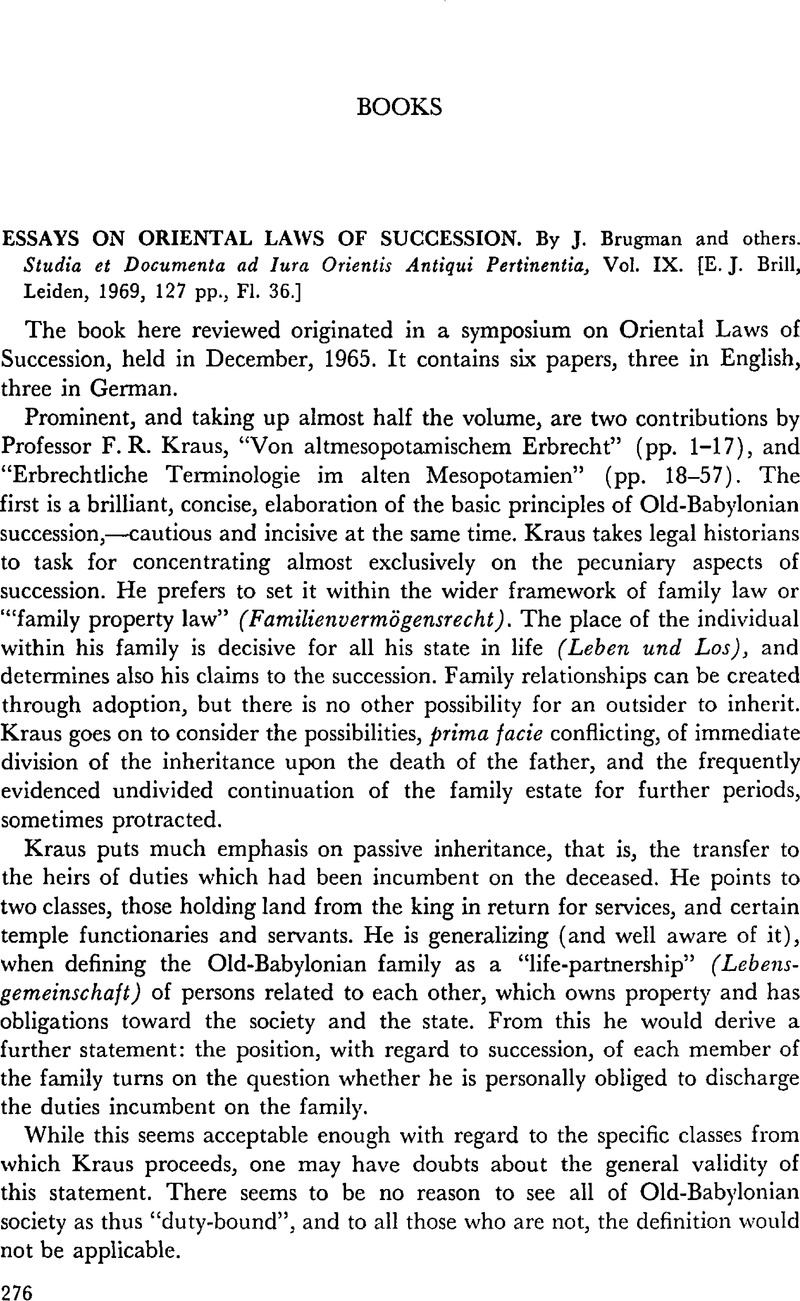Article contents
Essays on Oriental Laws of Succession. By J. Brugman and others. Studia, et Documenta ad Iura Orientis Antiqui Pertinentia, Vol. IX. [E. J. Brill, Leiden, 1969, 127 pp., Fl. 36.]
Published online by Cambridge University Press: 12 February 2016
Abstract

- Type
- Books
- Information
- Copyright
- Copyright © Cambridge University Press and The Faculty of Law, The Hebrew University of Jerusalem 1971
References
1 See, however, Pestman, at p. 65, on the so-called Codex of Hermopolis, “a collection of juridical instructions from the third century B.C.”; this text still awaits publication.
2 In much later times, this is the rule in Islamic law; see Brugman, p. 90 ff.
3 See my Introduction to the Law of the Aramaic Papyri (1961) 68.
4 The fragment was first published by Weidner, E., (1937) 12 Archiv für Orientforschung 53 ff.Google Scholar; see lastly Cardascia, G., Les lois assyriennes (1969) 336 ff.Google Scholar
5 See Cardascia, op. cit., p. 14.
6 Ulpianus 20.13: …furiosus (testamentum facere non potest) quoniam mentem non habet, ut testari de sua re possit. “…a lunatic (cannot make a will), since he does not have the (proper) mind, that he be able to will his property.”
7 See, within the volume under review, the remarks of Kraus (11 ff.) on the practice in various Babylonian cities and in Mari; see also Pestman (p. 66), on Ptolemaic Egypt.
8 For earlier dissent from the views of David, concerning the contacts between the Bible and the Ancient East, see my Laws of Eshnunna (1969) 193, and especially note 97.
9 Having written this, I took the precaution of consulting my colleague Dr. J. Meron. He concurs.
- 1
- Cited by


